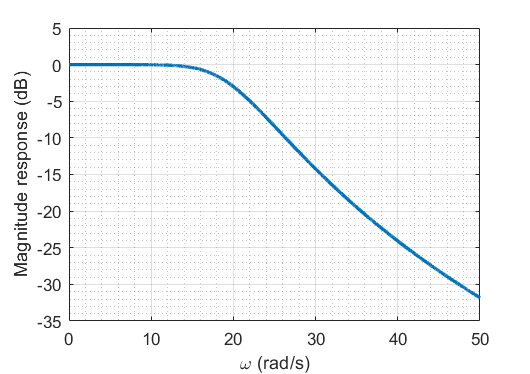I was hesitant to answer your question because it shows that you need to review the basics. However, I decided to answer, and hopefully this will encourage you to do just that!
The $s$ in $H(s)$ is a complex number $$s = \sigma + j\omega$$ where $\sigma$, the real part, represents a damping factor and $j\omega$, the imaginary part, represents an oscillatory component (for which $\omega$ is the angular frequency).
For sinusoidal steady-state analysis, we are interested in the behavior of the system at different frequencies but without the damping effect ($\sigma = 0$).
With that said, you only need minimal changes to your script:
omega = 0:0.01:50;
s = 1i * omega;

